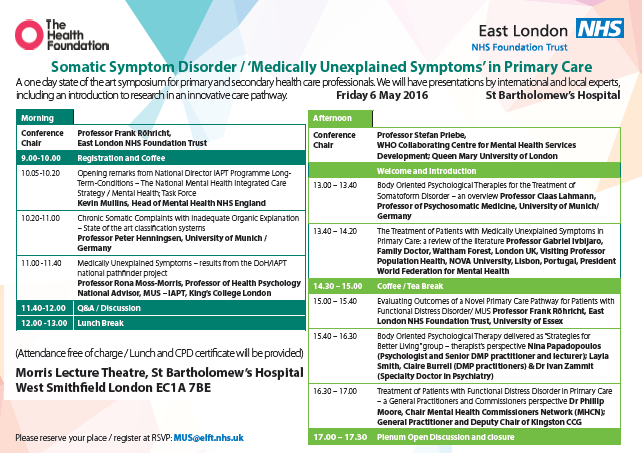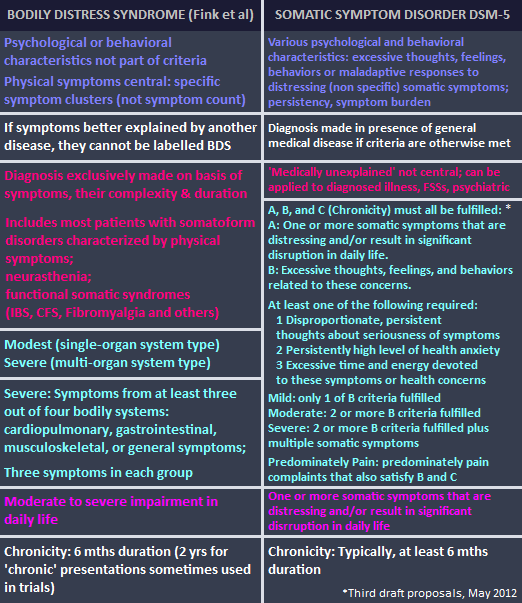Dx Revision Watch
Suzy Chapman Owner of Dx Revision Watch
- Messages
- 3,061
- Location
- UK
The timeline for the December 2016 Call for Bids for funding for delivery of integrated IAPT services is
18 January 2017 Submissions deadline for bidders
February 2017 Investment Decision taken by NHS England Investment Committee
March 2017 Notification of investment decisions
I'll go back to the NHS England site in a few months time and see whether there is any information on the locations of successful "Intervention 1" bidders for this new tranche of funding for delivering IAPT services, specifically where it has been obtained for
Long term conditions
Chronic Fatigue Syndrome (CFS)
and
Persistent distress in association with
medically unexplained symptoms that
cannot be classified as panic disorder,
health anxiety, IBS, CFS, or chronic pain
Transformation fund call to bid
https://www.england.nhs.uk/stps/tf-call-to-bid/
Improving access to psychological therapies (Integrated IAPT)
> Mental Health Call to Bid
https://www.england.nhs.uk/wp-content/uploads/2016/12/mental-health-call-to-bid.pdf
> Intervention 1 - Integrated IAPT
"Funding is for delivery of integrated IAPT services – to develop integrated services at scale (for instance teams of 10 therapists or more)."
"A significant aspect of the funding will be for expanding the IAPT workforce through new IAPT trainees or recruiting suitably qualified experienced therapists not already in IAPT. Training places will be subject to capacity at Universities, which we will work with Health Education England to secure."
"Because the academic year spans financial year the salary of trainees (and potentially their course costs) will also span the financial year. Areas will need to plan to locally fund trainees in 2018/19."
"We expect new Integrated IAPT services to start during the course of 2017/18 – the right time
will depend on the current local position and alignment with training courses."
18 January 2017 Submissions deadline for bidders
February 2017 Investment Decision taken by NHS England Investment Committee
March 2017 Notification of investment decisions
I'll go back to the NHS England site in a few months time and see whether there is any information on the locations of successful "Intervention 1" bidders for this new tranche of funding for delivering IAPT services, specifically where it has been obtained for
Long term conditions
Chronic Fatigue Syndrome (CFS)
and
Persistent distress in association with
medically unexplained symptoms that
cannot be classified as panic disorder,
health anxiety, IBS, CFS, or chronic pain
Transformation fund call to bid
https://www.england.nhs.uk/stps/tf-call-to-bid/
Improving access to psychological therapies (Integrated IAPT)
> Mental Health Call to Bid
https://www.england.nhs.uk/wp-content/uploads/2016/12/mental-health-call-to-bid.pdf
> Intervention 1 - Integrated IAPT
"Funding is for delivery of integrated IAPT services – to develop integrated services at scale (for instance teams of 10 therapists or more)."
"A significant aspect of the funding will be for expanding the IAPT workforce through new IAPT trainees or recruiting suitably qualified experienced therapists not already in IAPT. Training places will be subject to capacity at Universities, which we will work with Health Education England to secure."
"Because the academic year spans financial year the salary of trainees (and potentially their course costs) will also span the financial year. Areas will need to plan to locally fund trainees in 2018/19."
"We expect new Integrated IAPT services to start during the course of 2017/18 – the right time
will depend on the current local position and alignment with training courses."
Last edited:



